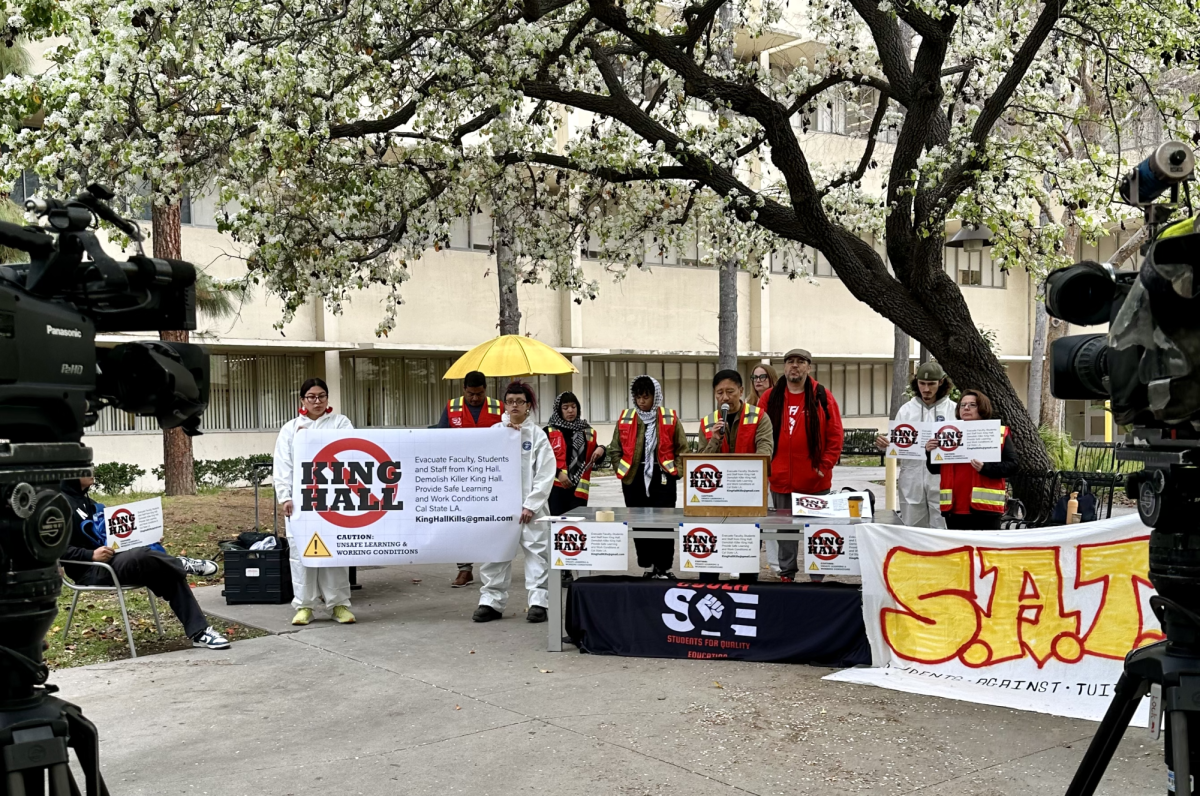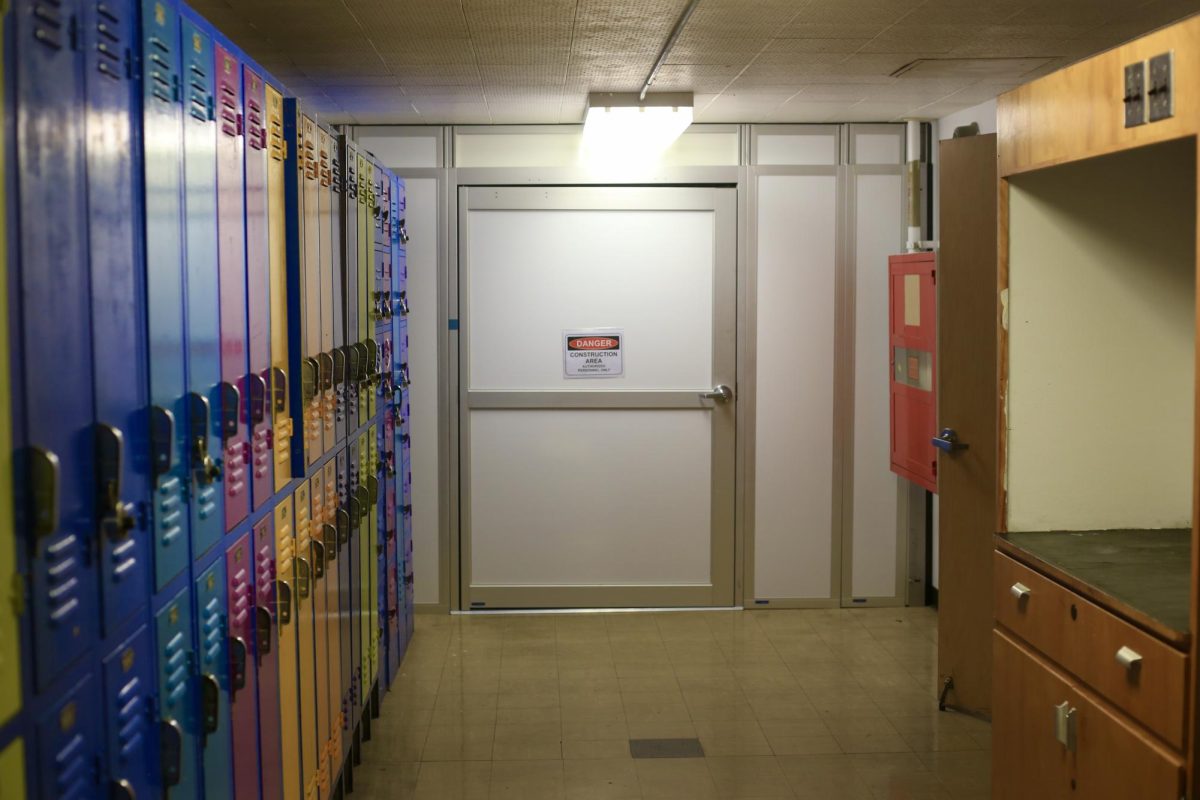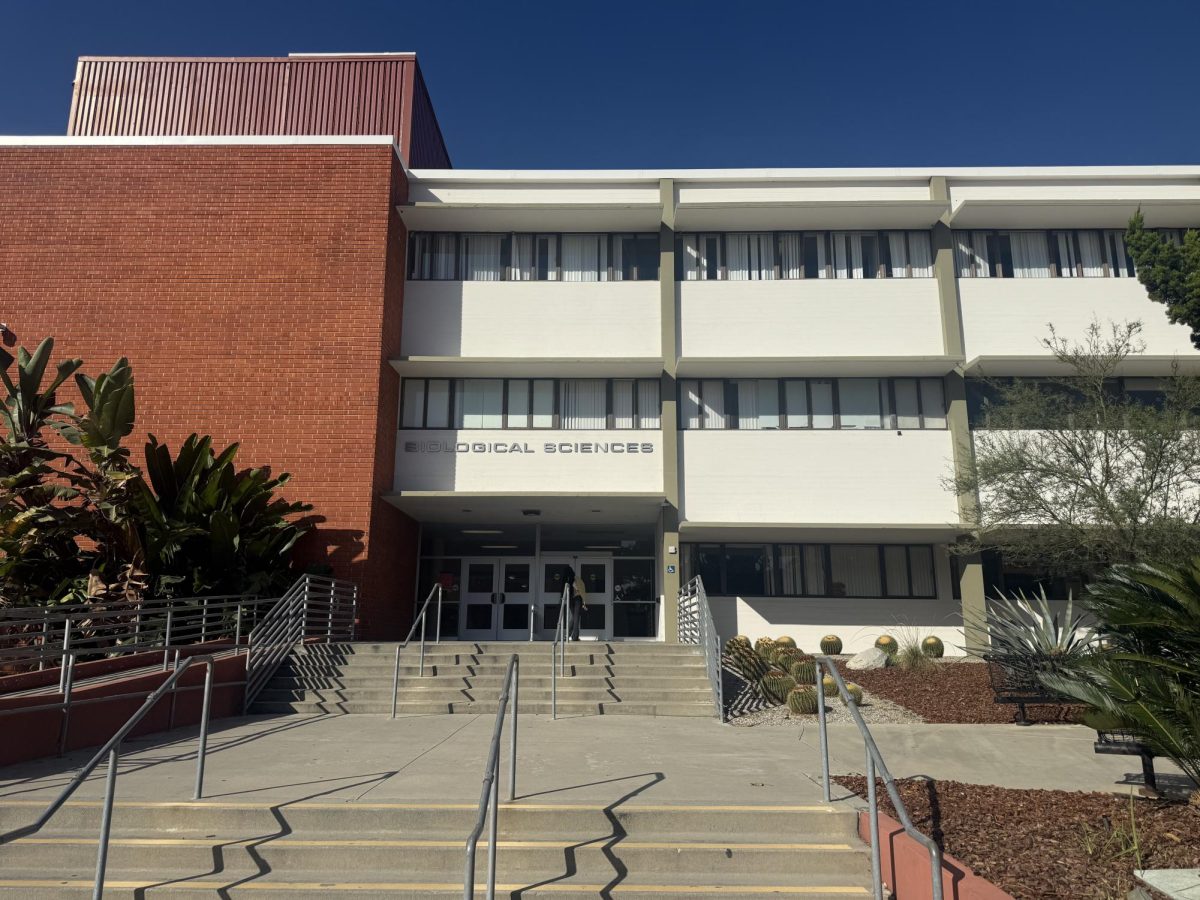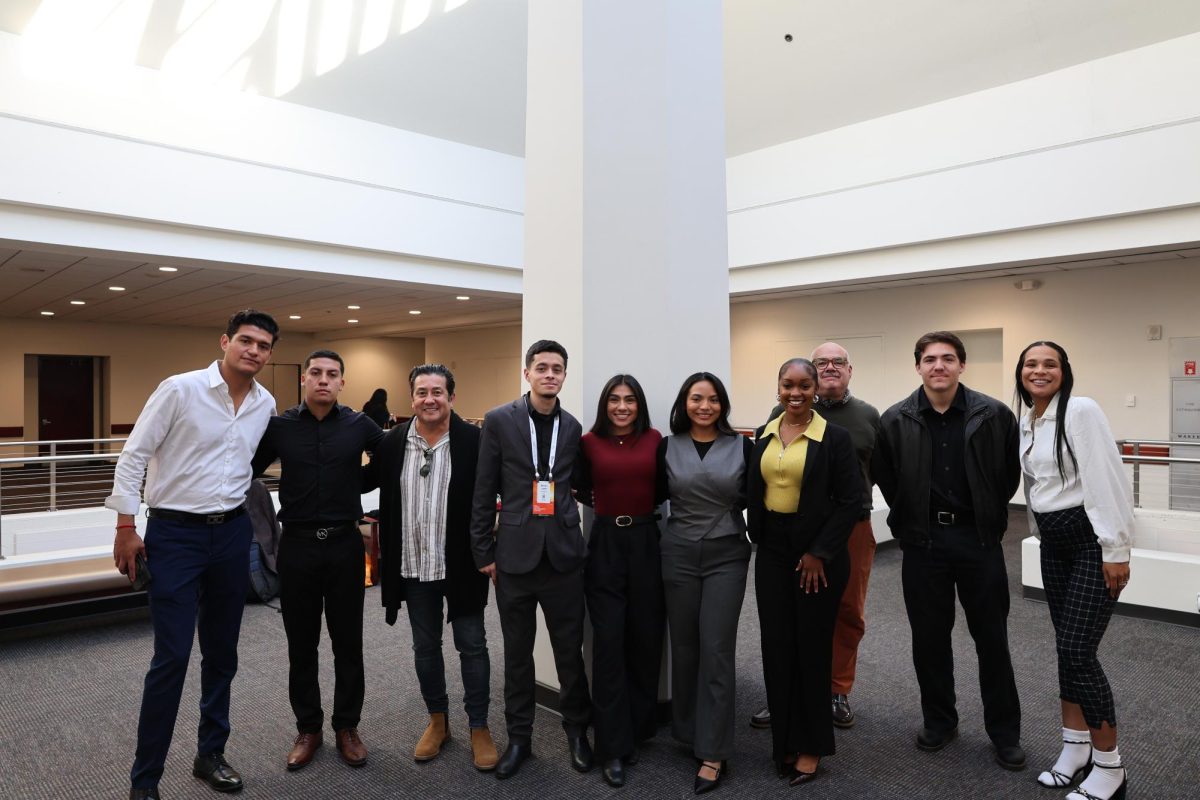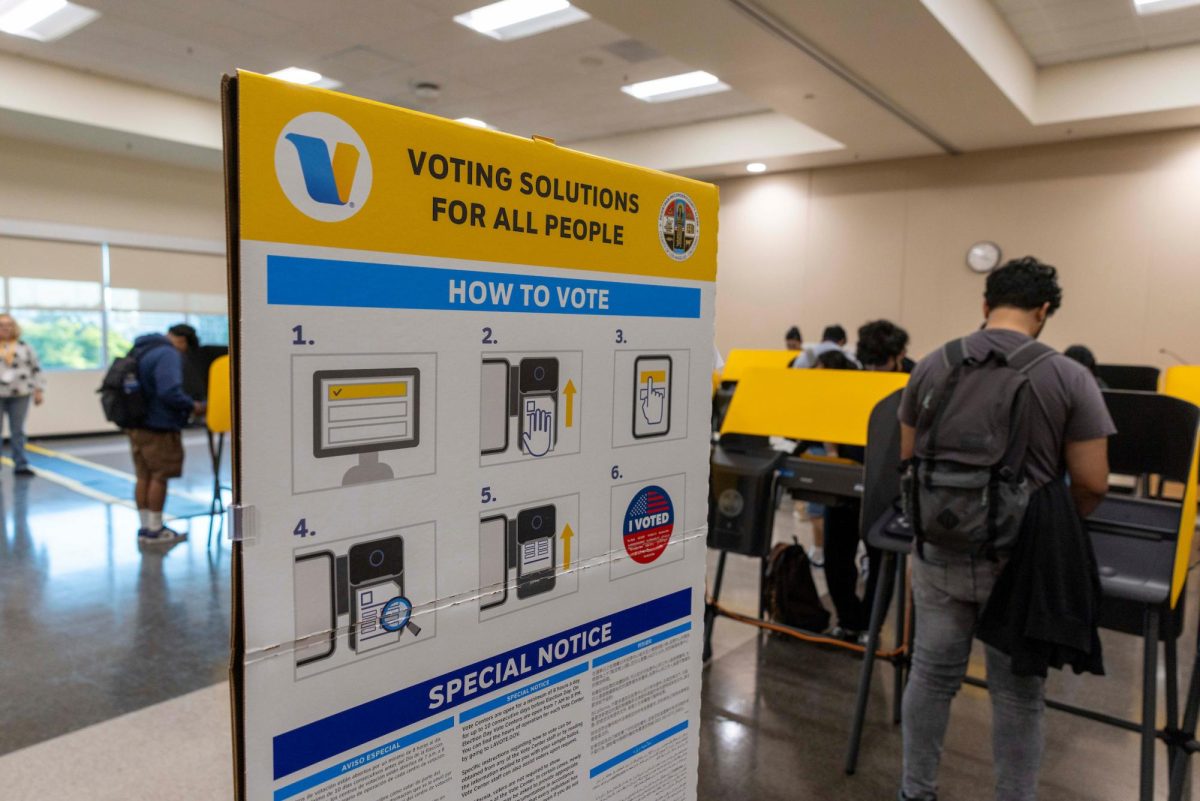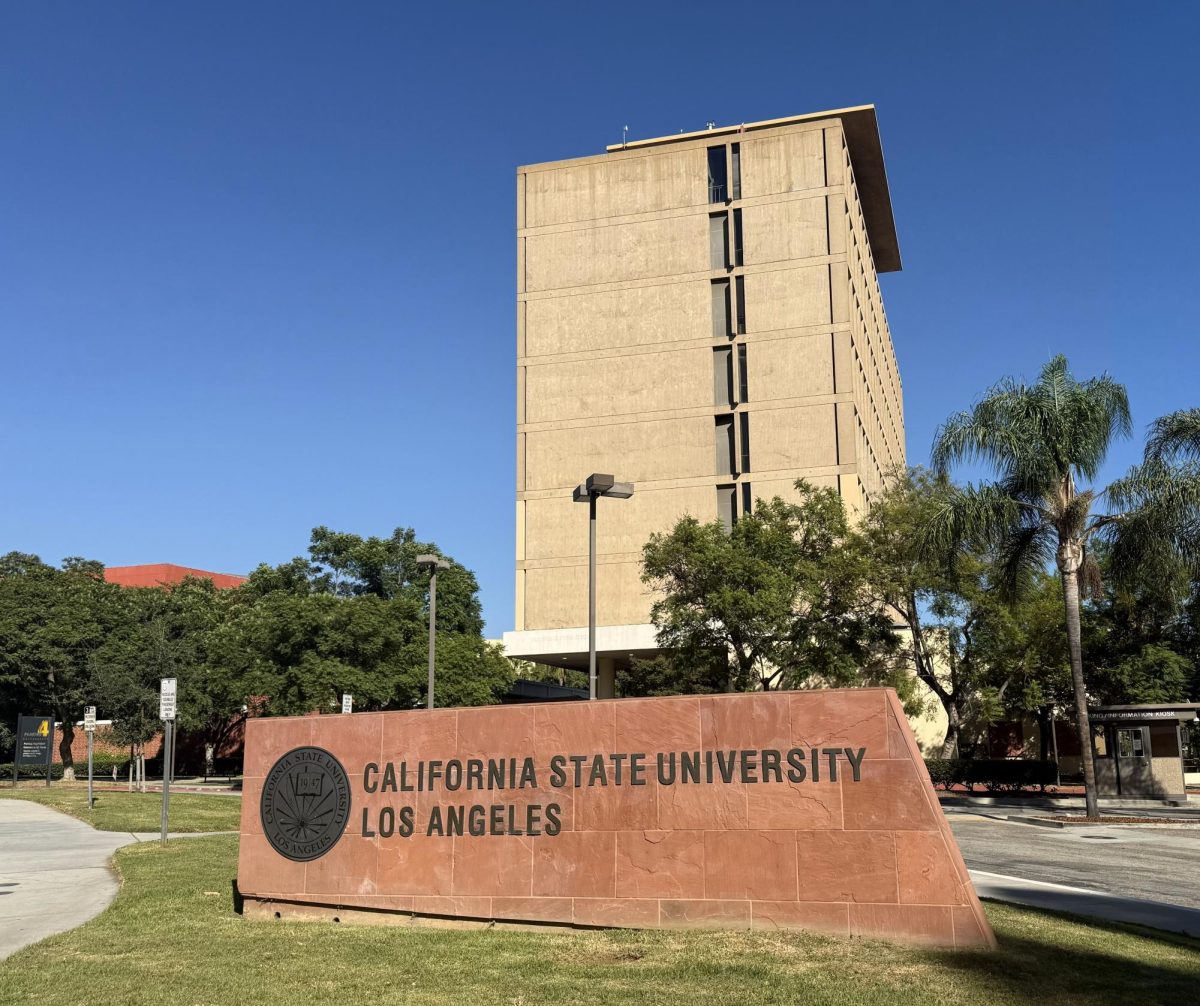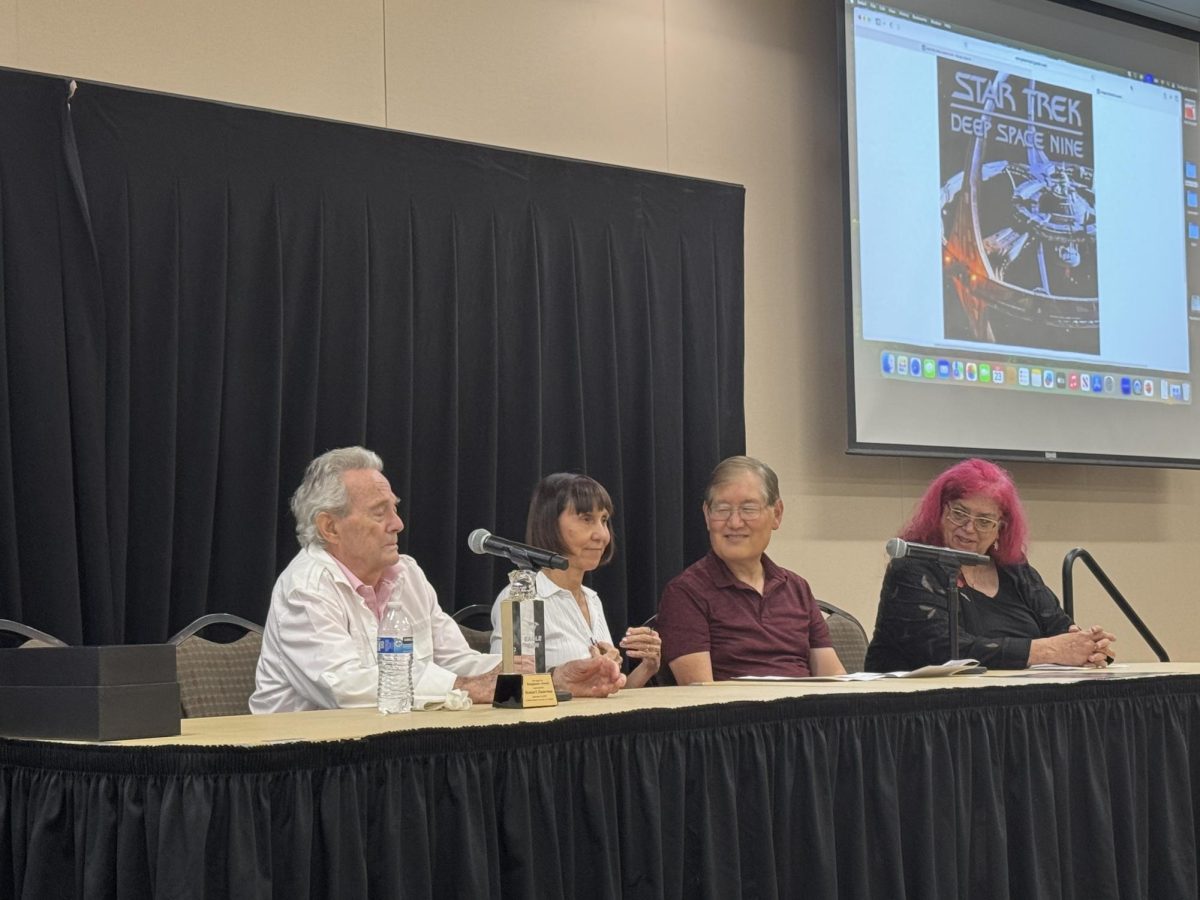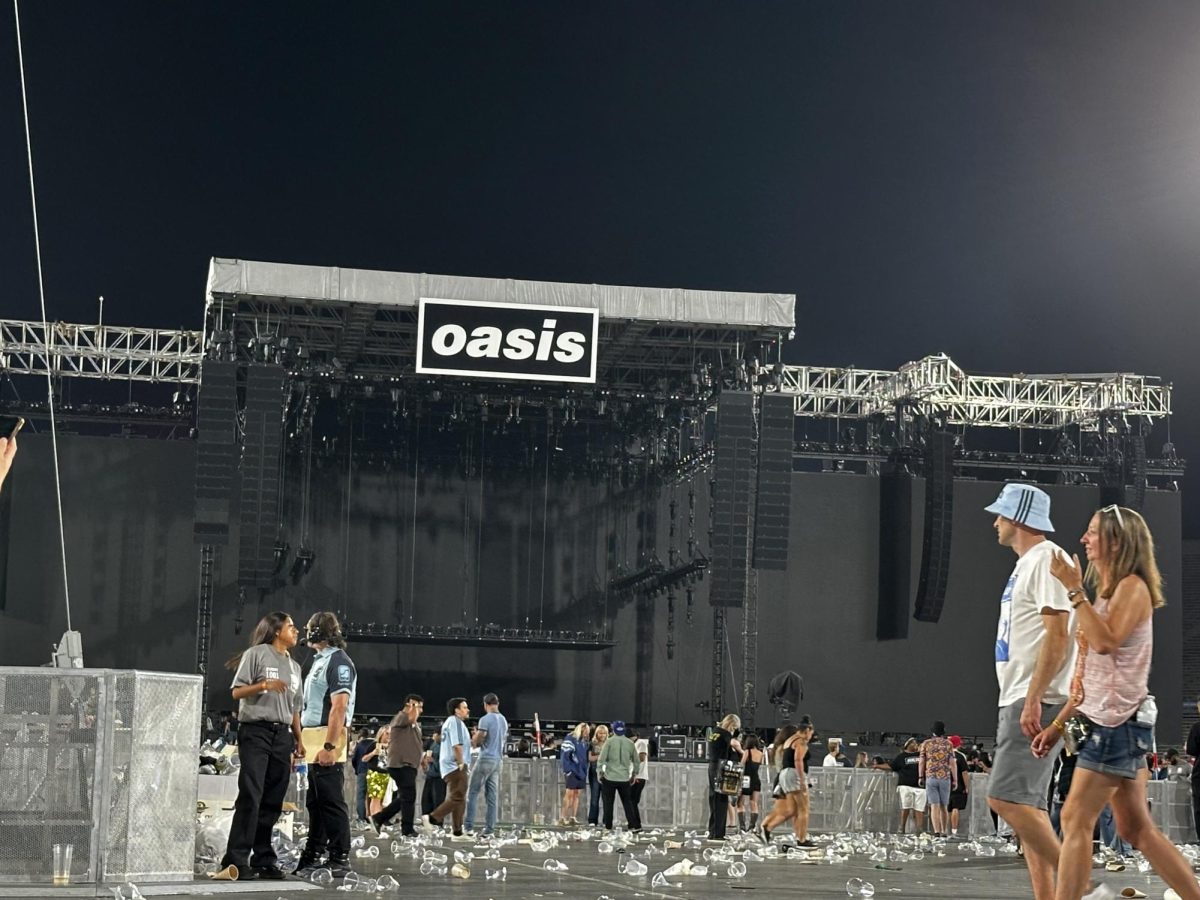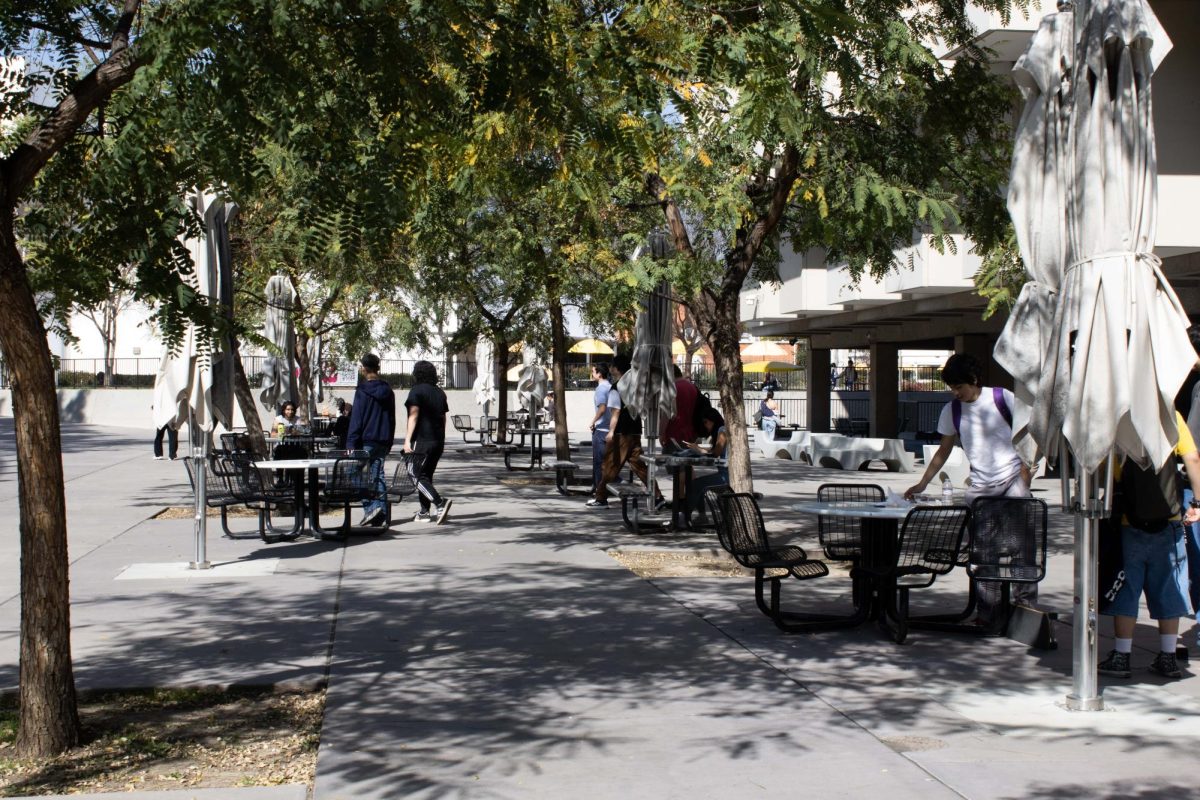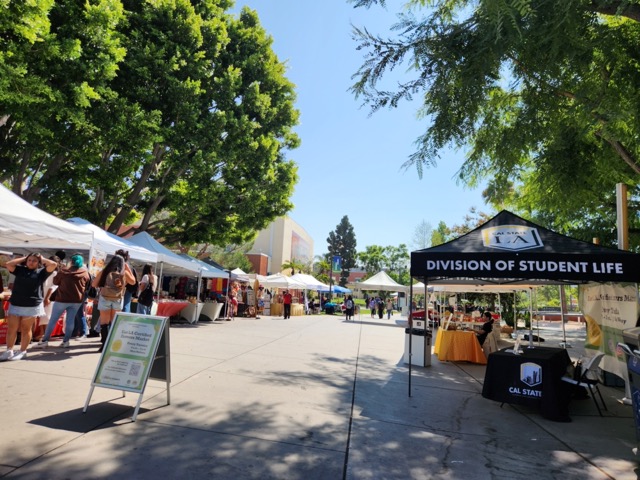Possible asbestos exposure, mold in the air, tiles falling off the ceiling, leaking roofs and walls. These infrastructural issues are concerns for many staff, students and faculty with classes in the Martin Luther King Memorial Hall building on Cal State LA’s campus.
On Feb. 23, tests revealed a possible risk of exposure to asbestos in one office in the A wing and mold in the air on the third floor of King Hall, according to a story by the University Times.
On Feb. 29, several faculty members, students and news outlets attended an emergency press conference held in King Hall’s courtyard to address the health and safety concerns. The conference was held in part of a two-day student walkout and teach-in regarding the safety concerns in King Hall and tuition increases.
During the conference, attendees intermittently chanted “King Hall kills” and “Tear it down.”
Associate Professor of Pan-African Studies and CFA-LA President Anthony Ratcliff, who spoke at the conference, has worked at the university since 2015 and said there was already talk of asbestos in the building, at the time. He said 2019 was the last time there was a “large uprising” about this “racial justice issue” – the unsafe conditions of the building.
“The fact is that we’re at a school that is predominantly students of color, and these are the kind of spaces that the students are forced to be in,” Ratcliff said in his speech.
Members of the Labor Council hope to meet with university President Berenecea Johnson Eanes to discuss her plans for addressing King Hall’s safety issues, according to Ratcliff.
“What is really going on? What are the rooms that were found with asbestos?” Ratcliff added. “What is being done to make sure nobody is going to get sick? What is to be done [about] the fact that there are people that are already experiencing different kinds of illnesses?”
Prior to the pandemic, Ratcliff, whose office is in the building, said he found black soot on his keyboard and recently noticed water leaking from the wall near his desk.
King Hall was built in 1962 and many of the issues reported come from the building’s age and a need for repairs, which has increased due to recent heavy storms, according to a statement from Public Affairs to the University Times.
“Although the building needs repairs, tests conducted last week indicate that the air quality in King Hall meets the standard set by the EPA and OSHA regarding asbestos and lead,” Communications and Public Affairs representatives said in their email.
The recent tests indicated the “presence of mold in an air sample” taken from a hallway on the third floor of King Hall’s C wing. In response, the university said the new administration is focused on addressing the needs of the facility to ensure that the problem has been corrected.
“Our facilities team is working to identify the source of the mold and will make any needed repairs,” Public Affairs said in their statement.
Lecturer and Board Member of the American Academy of Religion Women’s Caucus Theresa Yugar said King Hall’s infrastructural damage is an issue of “environmental racism.”
“Our students are primarily first generation, low income individuals of color in their pursuit for higher education. They already face many challenges, including food scarcity, homelessness, residency issues and health related issues,” Yugar said during the press conference.
She said the building is not a safe or dignified space for students, faculty and staff to work and study in and that the building’s name is ironic because “it is named after Martin Luther King Jr. who fought for equal rights for all.”
History major Ashley Gregory said she feels incredibly unsafe as a student who has classes in the building.
“You can see the ceiling tiles just fat with water and falling off. I pass by it every day,” Gregory said. “That’s one of the things that drove me back into wearing masks was not just COVID, but also like this place is probably going to make me sick if I don’t do this like I should be.”
Ratcliff and Gregory both mentioned that they noticed the university took down a webpage they previously had up, for a King Hall revitalization project. The university had confirmed a project to replace King Hall with a new building in 2022, but there has yet to be further updates on the project.
Director of Latin American studies Ericka Verba compared the structure of the university’s campus to “these gorgeous high rises next to these hobbles,” when discussing the newly updated Student Services building in comparison to the dilapidated King Hall.
“If we were a privileged university, this probably wouldn’t be here, because it would have been taken care of the minute it was spotted. It has literally [been] decades that we’ve known the problem and they don’t do anything,” Verba said.
After Feb. 23, when testing was conducted in King Hall, the UT reached out to the university for a statement regarding the possible exposure to asbestos in the building.
In an exclusive statement to the UT, the university reiterated that the new president and administration are focused on addressing King Hall’s facilities needs, as well as across the campus.
“We will build on input provided by the University community and continue to collaborate with the University community to determine the future of King Hall,” the university said in their statement.

